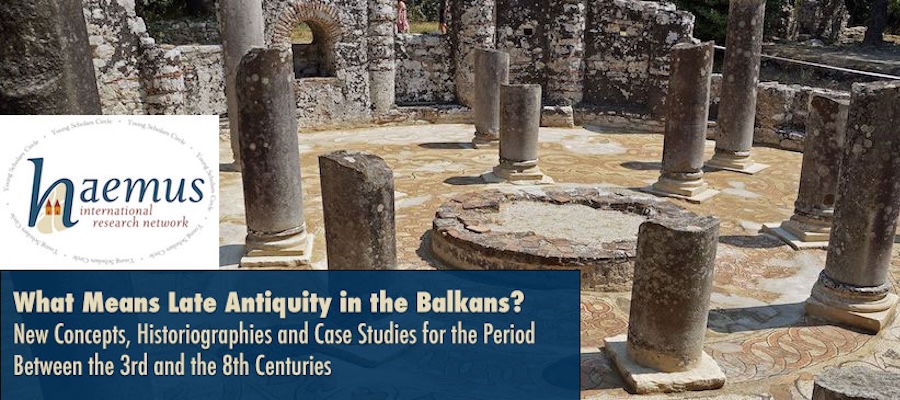What Means Late Antiquity in the Balkans? New Concepts, Historiographies and Case Studies for the Period Between the 3rd and the 8th Centuries, online, November 25, 2024
The Young Scholars Circle of the HAEMUS (YSCH) International Research Network is pleased to invite you to its second International Online Seminar for PhD students and Postdocs: What Means Late Antiquity in the Balkans? New Concepts, Historiographies and Case Studies for the Period between the 3rd and the 8th Centuries. This second edition of the YSCH online seminar aims to stimulate a discussion that, relying on the most recent studies and ongoing research, can contribute in identifying the main features and phenomena that characterised the Balkan Peninsula between the 3rd and the 8th century.
This second edition of the YSCH online seminar aims to stimulate a discussion that, relying on the most recent studies and ongoing research, can contribute in identifying the main features and phenomena that characterised the Balkan Peninsula between the 3rd and the 8th century. Depending on the starting point of view adopted for such a task, this period has been defined as Late Antiquity, Late Roman, Early Christian and Early Byzantine era.
Taking into account the distinctive features of this historical period, as defined in the major epistemological works on the matter, and recognising the elements of rupture and continuity from the previous era, the debate will propose answers to the following questions:
- What means Late Antiquite/Late Roman/Early Christian/Early Byzantine in the Balkans? (Viz. how Late Antiquity is generally perceived in studies produced in the Balkans and on the peninsula.)
- These formulas are to be accepted as simple synonyms for Late Antique or the latter is to be considered a precise definition for a peculiar period?
- What makes the Balkans specific and what makes it an integral part of the Empire between the 3rd and the 8th century?
This seminar will be multidisciplinary, relying on any kind of testimonies available in the fields of history, archaeology and art history. Among the themes for which discussion are encouraged, we can mention (but not exclusively):
- Historiography
- Epigraphy
- Numismatics
- Topography
- Iconography
- Administration
- Urban development
- Military organisation
- Religion
- Migrations
Presentations from PhD students or Postdocs who have defended their PhD dissertation during the last 5 years are accepted from this call for papers.
Presentations may be in English and in French. Each presentation (c. 20 minutes) will be followed by a small discussion (c. 10 minutes).
